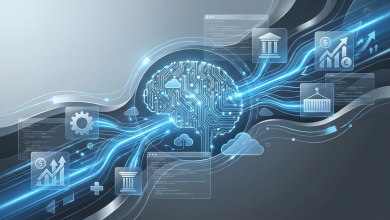Artificial intelligence is becoming more and more of a hot topic as it develops. Some see how it can benefit worker safety and increase efficiency. Others argue that too much advancement could lead to unemployment and worry about AI becoming sentient. No matter the stance, business owners are still looking for ways to include machine learning in their products.
One such business is home security. While it has many potential benefits, there are valid concerns about its reliability. Artificial intelligence can learn more than humans, but what if it disconnects from its network? How can homeowners and companies fix the problem before it becomes an issue?
Machine learning has the potential to revolutionize the safety of homes. Here are some of the pros and cons of applying AI to home security.
Artificial Intelligence in Other Industries
Security companies are on the increasingly long list of professionals looking to start utilizing AI. While it is still relatively new, leaders are intrigued by machine learning capabilities.
Some are using them to detect damage to machinery. Bosses might typically give this kind of training to factory employees. Using AI instead can reduce injury and improve efficiency in manufacturing. Artificial intelligence can detect machine problems before they become more significant. Doing so will save business owners from costly repairs and increase safety.
There are fascinating uses of machine learning in the medical field. Researchers are applying AI to further cancer studies without risking patients. While trying to figure out what may cause cells to resist cancer treatment, they use artificial intelligence to analyze all of the elements that may cause the issue. Scientists are also using it to find better treatment plans, create new medications, and predict chemotherapy success.
As technology advances, AI will likely affect the automation, entertainment, and agricultural industries. Machines can learn how to interpret and predict changes in the environment. Home security is looking at how they can use this to keep families safe.
The Pros of AI Home Security
With how quickly artificial intelligence can learn and interpret data, it’s easy to see where security professionals see the upsides. AI does have the potential to make living spaces more secure for the people who occupy them.
1. Facial Recognition
This could be practical for both homeowners and apartment renters. Homeowners may have fewer people going in and out of where they live. This will make it easy for AI to tell if someone could be an intruder. By learning the occupants’ faces, it can detect when someone trying to enter isn’t them. From there, the AI can alert security providers and tell the attempted burglar to leave.
In apartments, it may be even more helpful. While more people are living in a rented-out building, AI still has the ability to learn each face. It can be easier for an intruder to enter a building unnoticed by neighbors or standard cameras without machine learning. Artificial intelligence can eliminate this problem by recognizing everyone who lives there, making it safer for renters.
2. Routine Memorization
As the AI security system learns faces, it can also start to remember routines set by those who live there. If someone often comes home at a particular time, the system will learn that and note any discrepancies. By linking a routine to a face, it can tell who usually arrives and at what time. When someone is trying to get in with the wrong face at the wrong time, the AI can recognize this and send out alerts accordingly.
3. Geofencing
Geofencing creates a virtual boundary. It allows artificial intelligence to recognize the area it should be protecting. Once someone crosses that boundary, the security system can analyze whether the occupant, an animal, or an intruder triggered it. It can then learn whether this is someone it should recognize or someone looking to break in.
This can also set up awareness for any devices a person might own. The geofence can detect when something using Wi-Fi, GPS, or cellular data enters or exits the perimeter. If a thief enters the area with a cellphone or removes connected devices from the home, authorities can know the thief’s identity and what they stole.
The Cons of AI in Home Security
There are criticisms about using artificial intelligence in security. While it can make places safer, people are curious about what potential flaws there are in the system.
1. Possible Mistakes
Perhaps someone asks their friend to pick up their work laptop because they forgot it while in a rush. If the AI does not recognize this person, it could mistakenly set off an alarm. Luckily, most security systems nowadays send alerts to owners asking whether they know the person attempting entry. There may be a learning curve for AI systems.
2. Network Outages
If owners choose not to connect their system to cellular networks or a landline, it may not work during power outages. Additionally, since it is electronic, it has the chance of malfunctioning. Those thinking about using AI in their security systems should prepare themselves for possible power and network losses. Frequent tests and backups can help property owners stay protected.
3. Privacy
Many also worry about data confidentiality with artificial intelligence as a whole. While having a wealth of data to analyze is appealing, corporations doing so without consent creates concern within the public. Though many U.S. states previously banned facial recognition, some are now thinking about repealing those laws. Regardless, people still worry about privacy and potential racial bias in artificial intelligence, even with its practical uses.
The Future of AI in Home Security
The learning capability of AI gives it many possible uses in home security. It can remember who typically enters a living space and when, and detect breaches in digitally fenced-in areas. However, many do worry about their privacy and how to keep their systems running in outages.
Artificial intelligence does have a future in home security. What that future looks like continues to develop along with the technology.




